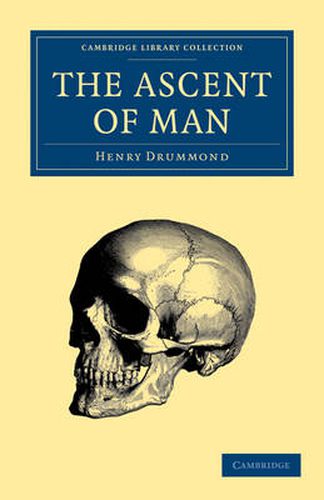Readings Newsletter
Become a Readings Member to make your shopping experience even easier.
Sign in or sign up for free!
You’re not far away from qualifying for FREE standard shipping within Australia
You’ve qualified for FREE standard shipping within Australia
The cart is loading…






The Lowell Institute in Boston, Massachusetts, founded in 1836, supports an annual series of distinguished lectures. Henry Drummond, the influential Scottish scientist, Free Church minister, explorer and evangelist published his Lowell Lectures as The Ascent of Man in 1894. This provocative book examines Darwinism in a Christian context. It describes the rise of man, who is considered the highest purpose of the universe, and his relations with the lower animals. In particular, it addresses the question of altruism and its role in promoting the survival of the fittest, which Drummond argues had been overlooked. Drummond claims, unlike traditional evolutionary theory, that the force of evolution is not only the struggle for life, but also the struggle for the life of others. His book, which aroused great interest in its time, remains of importance for historians and philosophers of science today.
$9.00 standard shipping within Australia
FREE standard shipping within Australia for orders over $100.00
Express & International shipping calculated at checkout
The Lowell Institute in Boston, Massachusetts, founded in 1836, supports an annual series of distinguished lectures. Henry Drummond, the influential Scottish scientist, Free Church minister, explorer and evangelist published his Lowell Lectures as The Ascent of Man in 1894. This provocative book examines Darwinism in a Christian context. It describes the rise of man, who is considered the highest purpose of the universe, and his relations with the lower animals. In particular, it addresses the question of altruism and its role in promoting the survival of the fittest, which Drummond argues had been overlooked. Drummond claims, unlike traditional evolutionary theory, that the force of evolution is not only the struggle for life, but also the struggle for the life of others. His book, which aroused great interest in its time, remains of importance for historians and philosophers of science today.